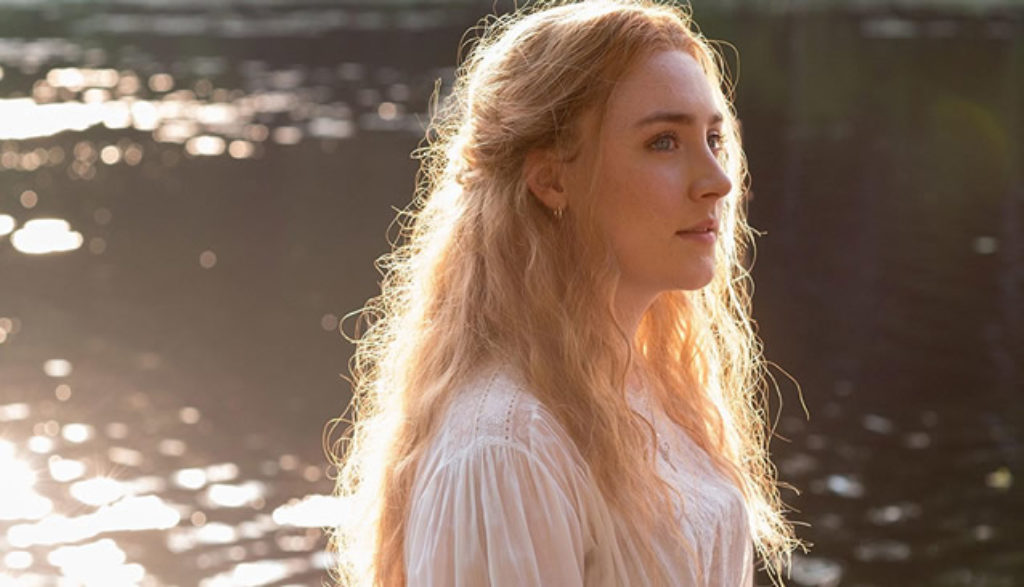
It began and ended at the Imperial Theatre in Moscow, Russia, in 1904.
Irina, a famous actress who is beloved and virtually worshipped by all who have the good fortune of meeting her, is a frequent performer at the theatre. One night, she is called away from the city to attend to her dying brother. When she arrives in the country, she brings with her a lover and a world famous writer, who goes by the name of Boris Trigorin. The two are adored.
Except, it should be said, by those who matter most. Constantine, Irina’s son, is a depressed playwright who is struggling to find his self-worth and voice. His only ray of hope in life is his muse and naive girlfriend, Nina. That is, until Boris comes along and destroys the only foundation he’s ever known by sweeping her off her feet.
This is the story of what happened before that fateful night and how life slowly unravels for the characters here, one failure at a time.
Love—or perhaps the lack thereof—is the main ingredient in this film. It dictates the actions of each character. Sometimes, they don’t know how to properly cultivate it. Other times, they simply exhibit a deep yearning for more. We see how important love is, as well as the tragic results that ensue when it’s not present.
We also see an emphasis on enjoying life, although not many characters here are able to do so. After all of Nina’s hardships, she tells Constantine that her secret to survival boils down to knowing how to persevere and to have faith in oneself.
A woman named Masha, who’s a friend of the family, strives to understand why she exists and what her purpose on earth really is. But that quest for meaning mostly leaves her feeling trapped in existential agony. Elsewhere, someone comments that the only people who fear death are those who believe in an afterlife of punishment.
The devil is mentioned as an adversary multiple times in a play. Someone mentions living with two “religious” ballerinas. We hear a reference to “a universal spirit.”
A sense of sexual freedom abounds. Irina is a free spirit who has had several partners and manipulates men with her body. She seduces the men who surround her, even some who are married. Boris, a man with whom she shares a sexual relationship, is also manipulative. He is a notorious playboy who sleeps with women of all ages, even going so far as to seduce a much younger woman. The two eventually have a sexual relationship. One primary character has a baby, apparently out of wedlock.
A married woman asks to move in with her lover. A woman wears a sheer nightgown, and we glimpse her bare backside and breasts through the material. A shirtless man lies in bed with his lover. Other couples kiss often and hold hands. A young man goes for a swim after removing his clothes. (We see his bare backside from afar.) Men and women kiss on the cheeks. Some clothing reveals cleavage, including a scene where a woman wears only a corset.
A man unsuccessfully attempts suicide, and we see blood splatter on the window. Later, he succeeds. (He places a gun in his mouth; we hear the killing shot but do not see anything else.) Constantine’s plays deal heavily with death. He also challenges Boris to a duel.
Nina’s mother passed away when she was young; she now lives with her father, who is referred to as a “monster,” and her stepmother. Someone shoots a seagull from the air and drags along its dead, bloody corpse (an obvious visual metaphor for the film’s focus on the loss of innocence). It’s mentioned that a baby dies.
God’s name is misused three times. Constantine and his mother, Irina, get into a shouting match in which they exchange verbal insults.
Characters smoke cigarettes and consume beer, champagne and other hard liquor. One woman is a notorious alcoholic. We see one person snort something, most likely snuff.
Each character feels a palpable sense of depression, lonliness and insignificance in some way. As a result, many of the characters cry and feel trapped by their negative emotions. These struggles seem to keep them from fulfilling their potential and from realizing how truly beautiful their life can be.
Irina, a madly jealous narcissist, mourns the loss of her youth and is basically bored with her life. Where she was once beautiful and irresistable, she is now aged and envious of Nina (or anyone else who dares to steal her spotlight). She speaks highly of herself to all who will listen and lives inside a bubble of perpetual vanity. When Boris shows interst in Nina, Irina seduces him physically and emotionally in order to “keep him.”
Constantine also has a tumultuous relationship with Boris. He believes that Boris exercises control over his mother that she cannot escape. When Constantine begins to see Boris having a similar influence over Nina, life becomes unbearable for him. In addition, Constantine always tries to win the approval, love and admiration of his mother, but to no avail.
Masha tells those around her that she is “in mourning” for her life because she loves Constantine, but he does not love her. She always wears black, is depressed and constantly drinks. Because she knows Constantine will never love her, she feels that getting married to a man who loves her (but whom she does not love) is the only way to end her misery; she believes marriage will provide a distraction of sorts, but she has no intention of being emotionally present in her marriage.
As mentioned above, Boris eventually has an intimate relationship with Nina, but he leaves her destitute once he finds no use for her. (His original intent was always to destroy her, a selfish impulse born out of his own boredom.) A man resigns after being treated poorly, and characters often yell in anger at one another.
The Seagull is a play that was written by one of Russia’s most famous playwrights, Anton Chekhov, in 1895. As is often the case with Russian authors, it’s a character-driven story that plumbs the depths of love and disillusionment as it focuses on the lives of Irina, Boris, Constantine and Nina. It’s not a happy story.
Instead, The Seagull unspools a tale of lost innocence, one that shows us how others’ idyllic lives aren’t always what they seem. It’s about manipulation, unrequited love, the search for significance and pervasive internal pain. Emotionally gripping moments in the movie invite us to believe that there may be a hopeful outcome just around the corner. But—as the characters here sadly discover—each time you peek your head around to look, you face crushing disappointment instead.
Ultimately, what we’re left with is a well-acted but dark-feeling (and sexually suggestive) story, one that may very well leave emotionally sensitive viewers feeling especially hopeless afterward.

Kristin Smith joined the Plugged In team in 2017. Formerly a Spanish and English teacher, Kristin loves reading literature and eating authentic Mexican tacos. She and her husband, Eddy, love raising their children Judah and Selah. Kristin also has a deep affection for coffee, music, her dog (Cali) and cat (Aslan).